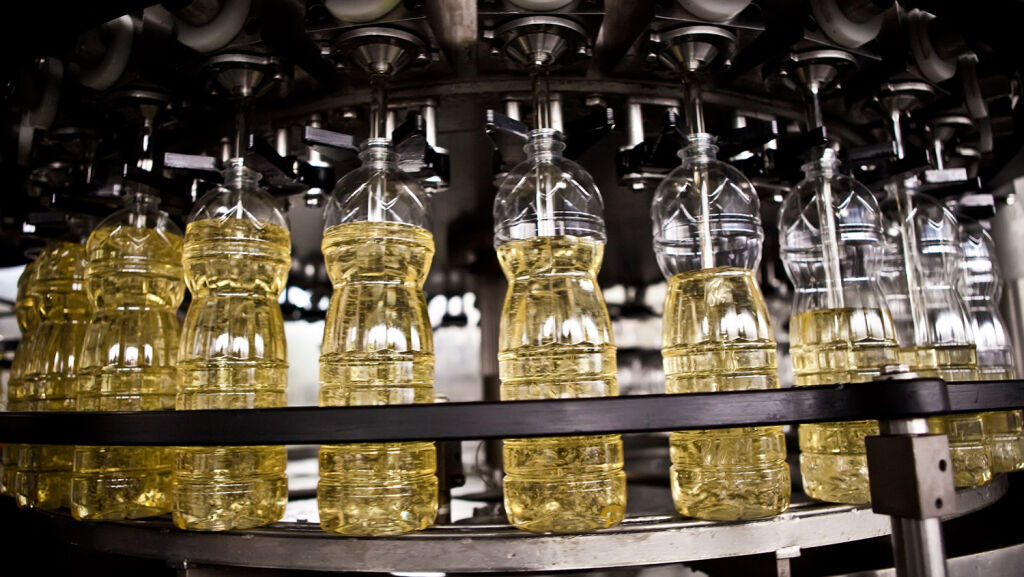Over the past 50 years, there has been a dramatic shift in American cooking habits, with a decline in the use of traditional fats such as butter, ghee and tallow, and an increase in the use of vegetable oils. This change is largely due to food companies marketing vegetable oils as heart-healthy and low in fat.
Many common vegetable oils—including soybean, canola, corn, cottonseed, sunflower, safflower, grapeseed and rice bran oils, sometimes called the “dirty eight”—are dangerously high in polyunsaturated fatty acids. These oils are now in many packaged and canned foods.
As of 2017, more than 20 percent of the calories Americans ate came from these oils, 20 times what it was 100 years ago. The amount of soybean oil consumed increased more than 1,000 times. Today, most people in Western countries consume a shocking 5 to 10 tablespoons of these fats every day.
The theory propagated by food manufacturers and many nutritional authorities was that vegetable oils are good for your heart because they’re high in linoleic acid. Experts also claimed that saturated fats found in red meat and dairy clog your arteries. They claimed that if you reduced your consumption of these foods and replaced them with vegetable oils that you would lower your cholesterol; reduce your chance of a heart attacks, stroke and heart disease; and enjoy a healthier life.
This overall narrative largely relied on the 1970 “Seven Countries Study” by Dr. Ancel Keys. Critics have said he cherry-picked data to prop up his hypothesis and ignored results that didn’t fit. Similarly, food manufacturers had a lot of profit incentive for championing studies like this one and ignoring evidence to the contrary.
A long-lost study points to the truth. Vegetable oil did lower cholesterol (by 30 points), but it also made people 22 percent more likely to die. Increased consumption of the recommended high linoleic vegetable oils also increased cases of clogged arteries and heart attacks. The idea that these oils are healthy is completely false.
Why? Look at the basic facts of what vegetable oils actually are. Vegetables are healthy, but extracting oil from them on an industrial scale so you can buy a bottle at your supermarket is a heavy-duty process requiring petroleum solvents, bleaching agents, hexane and other harmful chemicals. Further refinement such as degumming, neutralizing, bleaching and deodorizing can remove antioxidants, vitamins, tocopherols, polyphenols, phytosterols and other nutrients.
The nutritional abuse continues with the addition of carcinogenic butylated hydroxytoluene and benzotriazole as chemical preservatives and synthetic antioxidants. Other chemicals may leach into the oils from their plastic containers, and oils can go rancid while awaiting consumption. When the oil heats up, it can break down and release aldehydes, which have been linked to many health problems.
It makes you wonder why these dangerous oils are allowed in our food at all, let alone why they are prevalent. The simple answer: They are cheap, convenient and profitable for food manufacturers.
Linoleic acid and omega-6 polyunsaturated fats are essential, but they should only constitute about 1 to 2 percent of your total daily calories. Most American diets are higher in omega-6 fatty acids and too low in omega-3. The healthy ratio is between 1:1 and 4:1. The average person’s ratio is about 20:1. Such drastic imbalances have been shown to cause chronic inflammation.
Saturated fats like the ones we consume from red meats and dairy were once believed to raise “bad” cholesterol levels, which could lead to heart disease. However, more recent studies strongly challenge this claim. Natural saturated fats are actually heart-healthy.
The Sydney Heart Study states, “Substituting dietary linoleic acid in place of saturated fats increased the rates of death from all causes, including coronary heart disease and cardiovascular disease.”
Red meats and dairy, consumed in their most natural form and in proper balance, are nutritious to the human body. Vegetable oils made using petroleum solvents, bleaching agents, hexane, butylated hydroxytoluene, benzotriazole and other chemicals are not nutritious to the human body.
Avoid vegetable oils. At the grocery store, read the labels on salad dressings, which are universally filled with harmful seed oils. Also check the labels of sauces, spreads, crackers, etc. Walk past these harmful products and reach for more natural alternatives, such as pure cold-pressed olive oil and saturated fats such as butter, ghee, coconut oil and palm oil.
- Coconut oil is high in saturated fat and contains medium-chain triglycerides, which are more stable and less prone to rancidity.
- Butter contains beneficial fat-soluble vitamins (A, D, E, K) and conjugated linoleic acid.
- Pure cold-pressed extra virgin olive oil is rich in antioxidants and monounsaturated fats, less likely to go rancid and beneficial for your heart. (Many companies commit fraud in marketing their olive oil: Pure oil will solidify in the refrigerator.)
- Ghee is butter oil that is high in fat-soluble vitamins and handles high heat well.
- Unrefined expeller-pressed flax oil is high in omega-3. (It is less stable and must be transported, stored, sold and kept in a refrigerator or freezer. It must never be heated.)
Natural fats in an unadulterated form provide essential nutrients, build healthy cells, produce hormones, absorb key vitamins, fuel your brain and make for a healthier diet and a healthier you.
You have a choice. Oil manufacturers would have you believe their chemically produced “food” products are better for your family than natural, unprocessed fats, but this is a blatant lie. Skip the refined seed oils and choose real, unprocessed, stable fats and oils for robust health.
